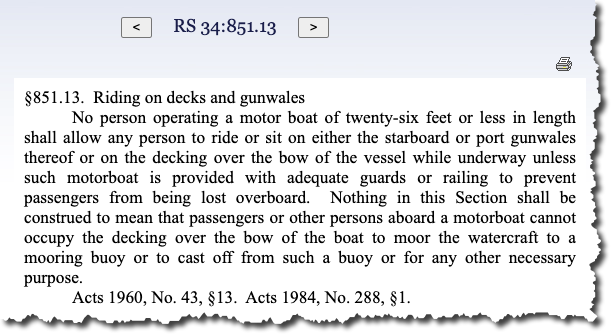Ensuring Safety in Competitive High School Tournaments: A Comprehensive Guide
by Jeremy Gallman, Founder / Tournament Director
Bass fishing tournament competitions bring with them not just the thrill of the sport but also a significant responsibility towards safety. The stringent rules and regulations in place are not just formalities; they are essential safeguards designed to protect the lives of those on the water. This article delves into the crucial safety measures mandated in such tournaments, underscoring their importance for every participant.
The Importance of Boat Pegs/Numbers
Each team in a high school bass tournament competition is issued a unique “boat peg” or number. This is not just a means of identification; it’s a critical part of the safety protocol. This peg or number must be retained until the weigh-in at the end of the tournament. It ensures that boats are accounted for and helps in managing the event more effectively, especially in terms of safety checks and compliance.
Mandatory Use of Personal Flotation Devices (PFDs)
One of the non-negotiable rules in competitive high school bass tournaments is the use of a U.S. Coast Guard-approved, state-approved chest-type personal flotation device (PFD). This rule is applicable to every contestant and boat captain, and the PFD must be fastened correctly anytime the combustion engine is operational, from the initial boat check until the weigh-in each day of the tournament. This requirement is a vital life-saving measure, as PFDs dramatically increase the chances of survival in the event of an accident.
Emergency Ignition-Shutoff Devices
All participating boats must be fitted with an emergency ignition-shutoff device (aka kill switch). This device is a crucial safety tool that must be securely attached to the driver’s body whenever the boat’s combustion engine is running. In case the driver is thrown from their position, the device will automatically cut off the engine, thereby preventing potential injuries or further accidents.
Seating Regulations During Operation
 Safety extends to how individuals are seated in the boat. When the combustion engine is running, all persons aboard a tournament boat are required to remain seated in manufacturer-recommended, on-plane seating locations. This rule is in place to minimize the risk of falls or being thrown overboard due to sudden movements or changes in speed. Additionally, sitting on pedestal seats while the combustion engine is in operation is strictly prohibited, in accordance with LA RS 34:851.13. This law reflects a commitment to ensuring maximum safety on board.
Safety extends to how individuals are seated in the boat. When the combustion engine is running, all persons aboard a tournament boat are required to remain seated in manufacturer-recommended, on-plane seating locations. This rule is in place to minimize the risk of falls or being thrown overboard due to sudden movements or changes in speed. Additionally, sitting on pedestal seats while the combustion engine is in operation is strictly prohibited, in accordance with LA RS 34:851.13. This law reflects a commitment to ensuring maximum safety on board.
Weather and Water Conditions
The tournament director (TD) holds the authority to alter the tournament schedule in response to unsafe weather or water conditions. This could include shortening, postponing, or even canceling tournament days. Such decisions, though possibly disappointing, are made with the utmost concern for the safety of all participants. Weather and water conditions can be unpredictable and can change rapidly, posing serious risks to those on the water.
Consequences of Safety Rule Violations
Non-compliance with these safety regulations is taken very seriously. Any violation can lead to disqualification (DQ) from the tournament. This strict enforcement underscores the priority placed on safety over competition. It serves as a constant reminder that while the spirit of competition is important, it should never compromise safety.
Conclusion
The safety rules in competitive boating are comprehensive and non-negotiable. They are designed not only to protect participants but also to foster a culture of safety-first in the sport. By adhering to these regulations, participants demonstrate their commitment to responsible boating and their respect for the lives of all those involved in the tournament. Ultimately, these safety measures ensure that the excitement and joy of competitive boating are never overshadowed by preventable tragedies.


